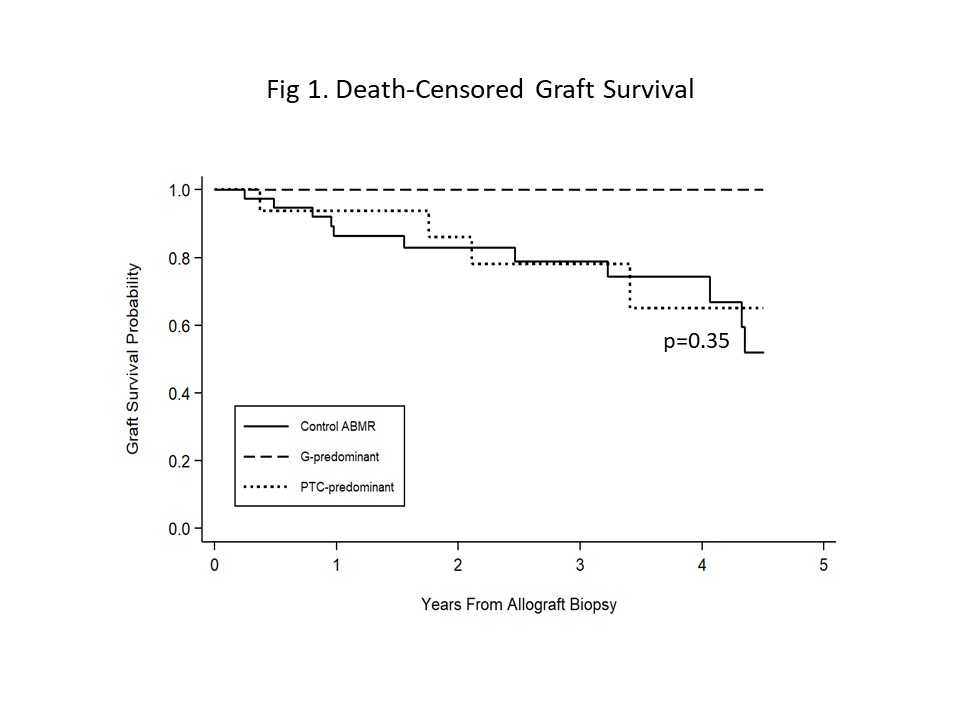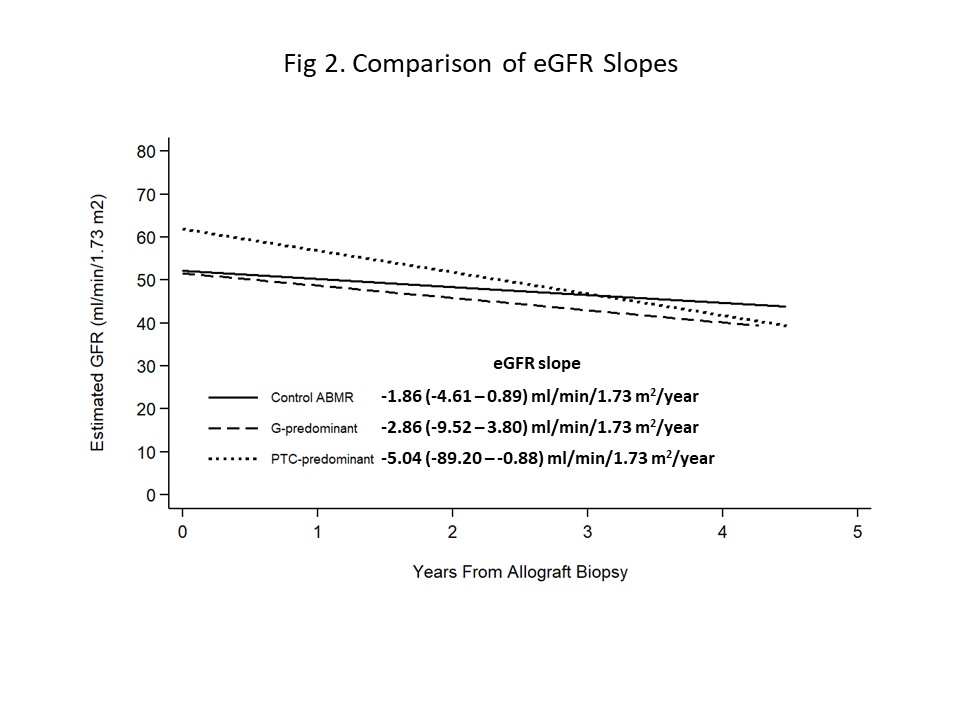Do Outcomes Differ in Glomerulitis Predominant Antibody Mediated Rejection and Peritubular capillaritis Predominant Antibody Mediated Rejection?
1Comprehensive Transplant Center, Cedars Sinai Medical Center, Los Angeles, CA, 2Pathology, Cedars Sinai Medical Center, Los Angeles, CA
Meeting: 2019 American Transplant Congress
Abstract number: D109
Keywords: Biopsy, Kidney transplantation, Rejection
Session Information
Session Name: Poster Session D: Kidney Acute Antibody Mediated Rejection
Session Type: Poster Session
Date: Tuesday, June 4, 2019
Session Time: 6:00pm-7:00pm
 Presentation Time: 6:00pm-7:00pm
Presentation Time: 6:00pm-7:00pm
Location: Hall C & D
*Purpose: The diagnosis of antibody-mediated rejection (ABMR) in renal allografts requires microvascular inflammation in the form of glomerulitis or peritubular capillaritis (g>0 and/or ptc>0). We investigated whether outcomes of glomerulitis-predominant ABMR (g-ABMR) and peritubular capillaritis-predominant ABMR (ptc-ABMR) differ from other forms of ABMR.
*Methods: All patients diagnosed with ABMR per the 2017 Banff classification from 1/2008 to 12/2017 at our center were included. Biopsies with a g+ptc score of ≥2 and a difference of at least 2 points between the g score and ptc score were considered g-ABMR (g=3/ptc=0 or 1; g=2/ptc=0 ) or ptc-ABMR (ptc=3/g=0 or 1; ptc=2/g=0). Graft survival and change in eGFR over time were compared to a control group of patients with ABMR with a g+ptc score ≥2 and a difference in the g- and ptc-scores of <2.
*Results: Ten biopsies with g-ABMR and 25 with ptc-ABMR were compared to 43 controls. Patients were younger and time to diagnosis was longer in the ptc-ABMR group compared to g-ABMR (table 1). High DSA MFI was more commonly seen in patients with ptc-ABMR. Graft survival at 4.5 years was 100%, 65.1% and 52.0% in g-ABMR, ptc-ABMR and control groups respectively (Log rank p=0.35) (fig 1). There was a statistically significant decline in eGFR slope in the ptc-ABMR group whereas eGFR slope was not statistically different than zero in the control and g-ABMR groups (fig 2).
*Conclusions: ptc-ABMR was associated with a more significant decline in kidney function. The presence of strong binding DSA could be a confounding factor in decline of allograft function observed in the ptc-ABMR group, but could not be accounted for in this preliminary study.
To cite this abstract in AMA style:
Sethi S, Hou J, Lin M, Ren Y, Peng A, Najjar R, Vo A, Jordan S, Haas M, Huang E. Do Outcomes Differ in Glomerulitis Predominant Antibody Mediated Rejection and Peritubular capillaritis Predominant Antibody Mediated Rejection? [abstract]. Am J Transplant. 2019; 19 (suppl 3). https://atcmeetingabstracts.com/abstract/do-outcomes-differ-in-glomerulitis-predominant-antibody-mediated-rejection-and-peritubular-capillaritis-predominant-antibody-mediated-rejection/. Accessed February 10, 2026.« Back to 2019 American Transplant Congress



